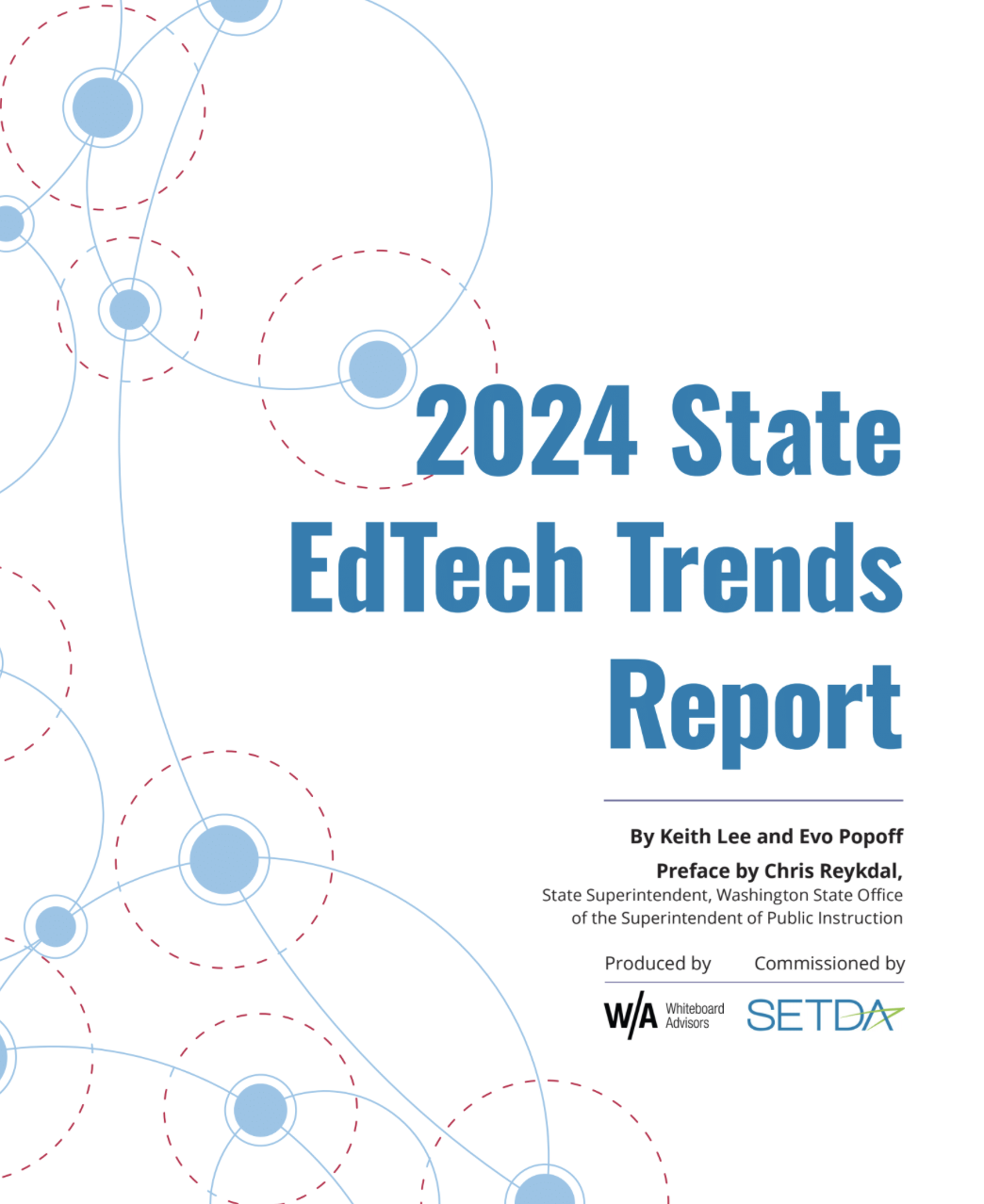SETDA, the member association representing state and territorial educational technology and digital learning leaders, published its third annual 2024 State EdTech Trends Report, providing insights on the top edtech priorities as identified in SETDA’s survey of state policy-makers including state edtech directors, state superintendents, commissioners of education, and CIOs. This year’s survey collected information from state leaders in 46 states and included questions relating to the 2024 National Educational Technology Plan that was released earlier this year by the Office of Educational Technology at the U.S. Department of Education.
The report, a collaboration between SETDA and Whiteboard Advisors, complements the insights from the survey data with spotlights that showcase the important work of state leaders in Indiana, Kentucky, Maine, Virginia, and Washington. These leaders are developing tools to advance the responsible and safe use of AI in K-12 classrooms, collaborating with state and district leaders to support cybersecurity in schools, and supporting the effective and equitable use of edtech tools.
Among the key findings in the report and survey:
- Cybersecurity: 24% of respondents reported that cybersecurity is a top priority, though the percentage decreased slightly compared to last year.
- Artificial Intelligence (AI): Artificial Intelligence surged in importance, with requests for AI guidance increasing significantly. 92% of respondents in 2024 reported increased interest compared to 54% in 2023. Approximately half of the respondents indicated that their state has prepared AI guidance over the past year.
- Broadband: 85% of respondents took steps last year to improve home broadband and device access for students, with 71% continuing prior efforts and 14% launching new efforts during the 2023-24 school year.
- Funding and Sustainability: Only 27% of respondents indicated that they have plans to sustain funding for projects supported by ESSER/ARP funds, showing uncertainty regarding the long-term sustainability of initiatives.
"With every new report, it’s more evident that state education agencies are evolving to meet the demands of a digital, modern world while navigating the uncertainty created by emerging technologies like artificial intelligence,” said Julia Fallon, Executive Director of SETDA. “I’m particularly excited to spotlight the work of the Office of the State Superintendent of Public Instruction in my home state of Washington as they collaborate with local administrators and school leaders to support the use of AI in the classroom. I hope that the stories from states like Indiana, Kentucky, Maine, Virginia, and Washington that demonstrate the impact of collaboration and a sustained commitment to edtech effectiveness and equity will inspire and serve as examples for other state leaders.”

